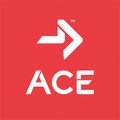Yomi Karade (full name: Oluyomi Majekodunmi-Karade) is an award-winning international inclusive health and wellness coach. Karade works with clients online and in-person across the globe, specializing in meal coaching, Zumba fitness, personal and group training and behavior management, all for people with and without disabilities and neurodifferences. Karade is the founder of Inclusive Fitness Programs with Yomi and Special Needs Fitness Magazine (www.specialneedsfitnessmagazine.com).
Please describe the work you do and the types of adaptive athletes/clients with whom you specialize in working.
As a health and wellness coach, I am an inclusive personal trainer, Zumba fitness teacher, behavior and meal/plate planning coach, and a relaxation specialist. I work with adults and children, both with and without disabilities or neurodifferences. This includes those with autism spectrum disorder, albinism, attention-deficit hyperactivity disorder, cerebral palsy, Down syndrome, fragile x syndrome, physical disabilities, mental health issues, traumatic brain injuries, cancer, stroke and dementia, as well as victims of violent crime, the blind and visually impaired and many more. I also offer online and in-person health and fitness programs for New Jersey's Developmental Division of Disabilities, at pharmaceutical firms, at non-profit and for-profit organizations, and with countless individuals. My clientele come from various places throughout the world, including the United States, the Dominican Republic, Europe, England, Canada, Haiti, the Philippines and India.
On a daily basis, I design safe, client-focused workouts that help my clients succeed, while also improving critical areas like core, upper- and lower-body strength. These workouts are adaptive, challenging and measurable. Individual fitness goals inspire clients to discover their inner strengths and passions, and then I show them how to apply these skills to achieve their real-life goals.
In behavior-management coaching, I help clients break undesired behavior patterns and make choices that promote their growth and full potential. As a meal/plate coach, I educate clients and/or their caregivers to recognize the link between food and wellness.
During my career, I have helped numerous clients improve their strength, mobility, stamina and agility so they can compete in special needs events and team sports like basketball, skiing, tennis and dancing. In 2020, one of my clients competed in the Special Olympics during the New Jersey Winter Games for skiing and won both silver and gold medals. In February 2024, he won two gold medals in the same competition.
What have you struggled with most when working with this population? And, how have you overcome those struggles?
Before becoming an ACE Certified Personal Trainer in 2017, I worked as an Applied Behavior Analysis/Registered Behavior Technician (ABA/RBT) and behavior specialist for children and adults. I saw firsthand the lack of physical activity that this population engaged in or was encouraged to undertake on a regular basis. As the mother of a child with autism spectrum disorder, albinism and a vision impairment, I was determined to change this picture.
By 2018, I began working as a personal trainer for people with special needs and disabilities at a local gym. I named my first program Individualized Fitness Programs, now known as Inclusive Fitness Programs with Yomi. I faced cruel insults and statements, as well as minimal support, but I persisted. I knew it in my soul that this population was underserved and I felt called to respond. Eventually, I succeeded in raising awareness in the local community, and the support just kept pouring in. I appeared on state news and in other local media papers and magazines. Being able to use a nearby gym and participate in inclusive fitness programs brought relief and excitement to a number of parents of special needs children. My efforts soon won me the community's support, and in 2019 Autism Speaks presented me with a grant in recognition of my work with this demographic.
What is your favorite thing about working with this population?
There is a beautiful exchange between student and teacher when working with this community. Just being in their presence always energizes me. They are my teachers; they help me to be a better person and they push me to create better health and wellness programs. In exchange, my clients improve their fitness levels, self-esteem and many other aspects of their lives. My clients offer unconditional love, both verbally and nonverbally, and are extremely honest and loyal. They bring me so much delight. What I receive from them cannot be adequately expressed in words, but I know it is incredible.
What would you like other coaches/trainers to know about working with adaptive athletes/clients? Any advice to share?
This community has a lot of love, passion and joy to share with the world. So, the most crucial thing for coaches and trainers to understand is that this group is more than just persons with a condition or impairment. Working with this community requires a high level of commitment, patience and understanding, as well as an intuitive ability to connect with them.
My advice to coaches and trainers is to never pity your clients' differences or disabilities, never regard them as incapable and never limit their opportunities. Many in this community just need necessary adaptations so that they can be successful and improve their fitness. I believe that this population is an essential asset to our development as coaches and trainers. We simply need to be creative, ask people who already work with this population for help when needed, and always come up with safe and effective fitness solutions.
What issues/problems do you see in the industry related to this population and what can other health and fitness pros do to help?
I believe that education is crucial for gaining a better understanding of this demographic. Currently, many personal training and health coaching programs lack comprehensive course-based modules that focus on best practices for this population. I feel the industry might make a stronger effort to equip health and fitness professionals with the practical and credible knowledge they require to work with this population. It would also be wonderful if fitness certification providers developed and offered coaching programs for this population so that they, too, can become coaches/trainers at various levels. Also, we must continue to educate medical professionals, families and individuals in this community about how important it is to live a fit and healthy lifestyle.
To learn more about working with adaptive athletes/clients, check out these two ACE continuing education courses:
-
Adaptive Fitness Exercise Programming (worth 0.4 ACE CECs): In this course, you’ll learn how to effectively work with clients with Down syndrome and autism spectrum disorder, as well as non-ambulatory individuals. The focus is on communication, individualized programs and motivating both clients and caregivers.
-
Adaptive Fitness for Clients with Special Needs (worth 0.1 ACE CECs): In this course, you’ll learn how to modify exercises and programs for clients with various diagnoses, behaviors and physical limitations, as well as communication strategies that encourage client compliance and motivation to learn.




 by
by 







